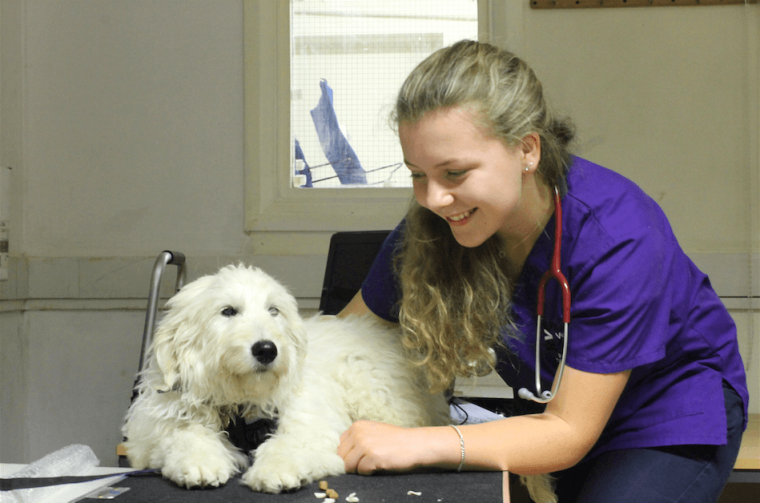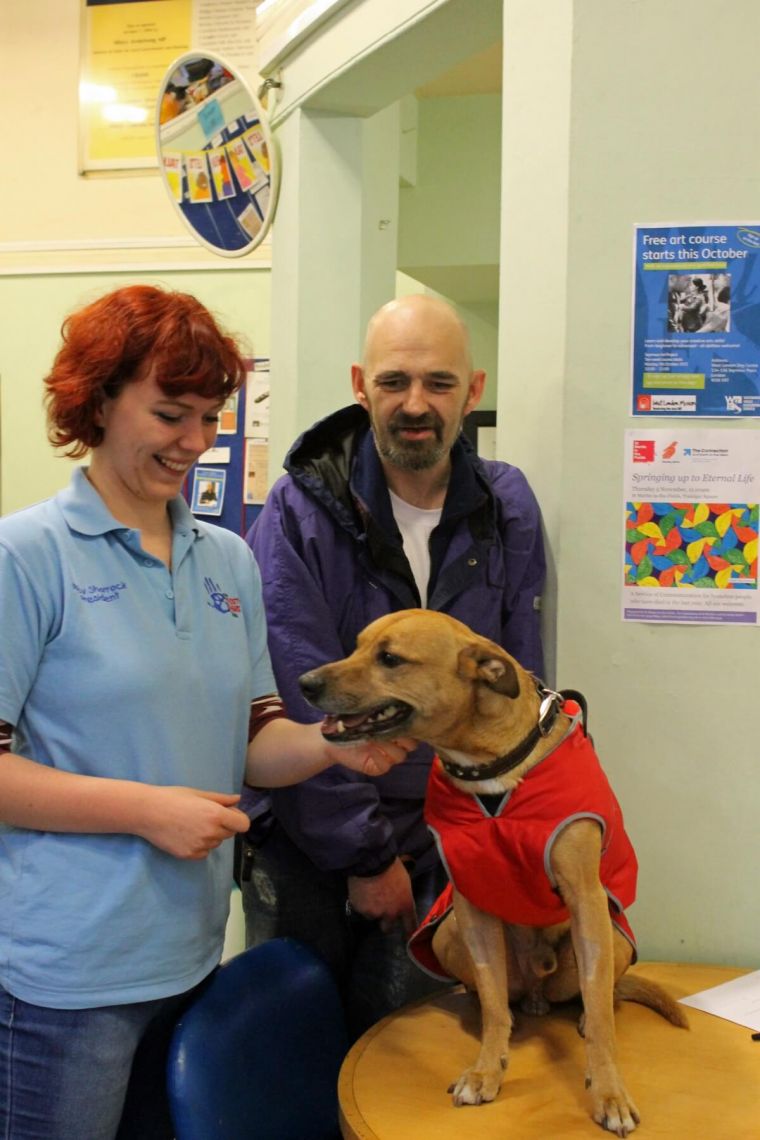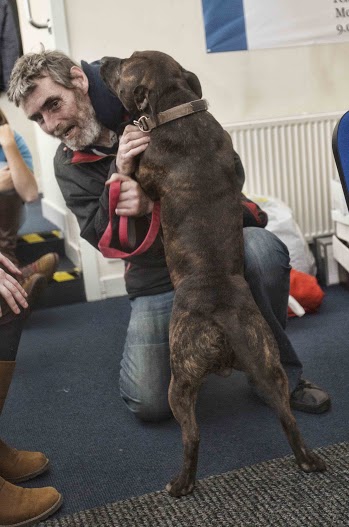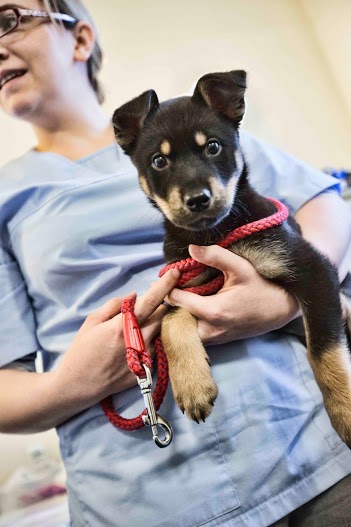Helping 'wuff' sleepers in the heart of London
Homeless dogs are a common sight on the streets of London. They lie trustingly beside their owners, in doorways and on sleeping bags across the capital. Now, just in time for Christmas, a day centre for homeless dogs is to open, believed to be the first in London.

Most of the drop in centres and hostels that care for rough sleepers do not allow dogs. This means their owners will often sleep on the streets rather than leave their dogs to rough it outside without them. Many of these people have fallen through the net, often without even access to benefits, so it can be hard for them to find the help they need when their dog gets sick or needs extra attention, such as a warm winter coat.
To help these homeless dogs, often the best friends of the rough sleepers who own them, the West London Mission has joined with a team of veterinary students.

The students, from the Royal Veterinary College, have set up "Trusty Paws" in London, a day clinic for homeless dogs that will run alongside the West London Day Centre in central London.
The centre in Marylebone sees up to 100 rough sleepers every day. They can have a warm shower, eat a hot breakfast and see the in-house NHS team for medical care. Last year, it helped 304 people come off the streets.
The clinic will offer a similar service but this time for dogs, ensuring that the city's homeless dogs are up to date with their vaccinations and any other health needs.
Ruby Shorrock, founder and president of Trusty Paws, said the clinic will offer preventative care for dogs belonging to homeless people. "Veterinary care is very expensive. People who are homeless or vulnerable find it hard to pay for." She came up with the idea after learning of a similar clinic in Nottingham. Besides vaccinations, the clinic offers flea and worm treatment, micro-chips, medical check-ups, food, collars and even coats to keep the homeless dogs warm through the cold winter nights.

Ruby, in her fifth year at Glasgow vet school, set up a similar scheme in Scotland last year. She said fears that homeless dogs might have more parasites than other dogs, or be underweight or neglected, were unfounded. Despite challenging living conditions, the owners look after them well and tend to put their dog's needs before their own. But they can find it difficult to keep them up to date with vaccinations and other general needs that dogs with homes take for granted.
Jon Kuhrt of the West London Mission said: "The West London Mission has been working with homeless people for more than 125 years but this is the first time we've been involved in a service specifically for their dogs. Relationships are at the heart of addressing homelessness and we know how important the relationship often is between homeless people and their dogs."
In London in 2014-15, outreach teams saw 7581 people people rough sleeping, an increase of 16 per cent on the previous year. This did not include the many people sleeping in parks, night buses or at airports. Westminster, where the West London Day Centre is based, has by far the largest number of rough sleepers with 2570, up by 17 per cent in a year.

The centre receives no government funding following cuts to grants and depends on raising £400,000 a year from donations and trusts. Homeless people can access showers, hot breakfasts and an in house NHS team, as well as employment support work and many other groups. The centre also coordinates the Westminster Churches and Synagogue Winter Night Shelter working with 14 churches and the synagogue locally.
Last year, WLDC helped 1621 homeless clients. The majority, 959 people, were new clients who had not come to the centre before. More than 700 received help from the in-house NHS medical team and more than 300 were resettled into accommodation.
Neither Trusty Paws nor the West London Day Centre receive any public funding and both are dependent on public donations.











